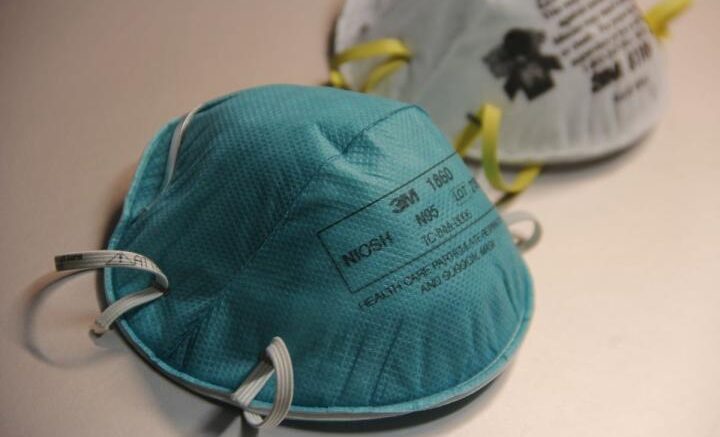In response to a global shortage of PPE early in the COVID-19 pandemic, a multidisciplinary team led by Dr Yvonne Anderson, a senior lecturer at the Department of Pediatrics, University of Auckland started researching a method for disinfecting PPE for potential reuse or safe recycling.
“Safety of healthcare workers during the current pandemic is critical to reducing community transmission of COVID-19, and this requires readily available PPE,” Dr Anderson said.
“The primary focus of our project was protecting healthcare workers and other frontline staff against the SARS-CoV-2 virus (the causative agent of COVID-19).
However, it’s paramount that we also find ways to mitigate the ever-growing amount of medical waste that goes to landfills, or worse, that ends up polluting our lands, rivers, and seas, magnifying the global problem of plastic pollution.”
Anderson and collaborator Dr. José Derraik of the University of Auckland pulled together a team from the Universities of Auckland, Otago, Canterbury, Waterloo (Canada), and New Zealand’s AgResearch to collaborate on the project. The team tested UV light and dry heat for disinfecting clinical PPE. In January 2022, their initial findings were published in Pathogens.
The study showed UV disinfection was not reliable on the irregular surfaces of PPE, but dry heat was effective. The researchers also found replication-competent virus remained on face masks for up to five weeks at room temperature.
The most recent stage of the research project has been to build and test a prototype mobile disinfection unit in a shipping container at the Port of Taranaki. Port Taranaki Head of Commercial, Ross Dingle says, “It’s great to have helped Dr Anderson and those involved in this innovative project. We’re thrilled the project has been a success."
“As a border-facing operation, Port Taranaki has been at the front line during COVID-19, which has involved many of our people wearing PPE each day. This has resulted in large amounts of PPE being used."
“It’s fantastic that this work has the potential to reduce the impact of PPE on the environment, and ensure an ongoing safe supply of PPE, even in the event of supply shortages.”
Collaboration has been key. In a high-security laboratory, University of Otago researchers led by professor Miguel Quiñones-Mateu performed the tests on the efficacy of heat and UV methods against SARS-CoV-2. Once dry heat was identified as the best contender, other teams led by Dr. Daniel Pletzer (University of Otago) and Dr Gale Brightwell (AgResearch) tested the efficacy of heat treatment against important bacteria that cause disease in humans, particularly in hospital settings.
Now, the research team is in the final stages, with help from the University of Canterbury. Associate Professor Mark Staiger and team at the University of Canterbury have been testing the effects of heat treatment on PPE materials, to assess if disinfection compromises the required levels of protection in any way. “We've managed to achieve a lot with this project in the last 18 months. However, there are more questions to be answered as with any project of this scale,” Dr Anderson said.
“Healthcare worker acceptability is a key consideration with any disinfection solution of PPE, and we are committed to prioritizing their voice in the wider project.”
The next steps for the prototype disinfection unit is to demobilize and transfer it to the University of Auckland Faculty of Engineering.
“That will then be with the team that are going to work on waste valorization so that we can actually make sure that we’re reducing our environmental footprint in health,” Dr Anderson said.
The aim is for unusable PPE waste to be broken down into water and largely harmless chemicals using hydrothermal processes. This work is being conducted by associate professor Saeid Baroutian at the University of Auckland's Faculty of Engineering, with input from Professor Bill Anderson (University of Waterloo) and Dr Trudy Sullivan (University of Otago).
“We aim to close the loop on single-use PPE by completely deconstructing and converting unusable PPE waste into safe, inert, and potentially valuable products. The combination of disinfection and hydrothermal valorization is a circular solution,” Baroutian says.
The project received $1.3M in funding from the Ministry of Business, Innovation and Employment (MBIE) through the COVID-19 Innovation Acceleration Fund, and a $46K grant from the Medical Assurance Society Foundation.
